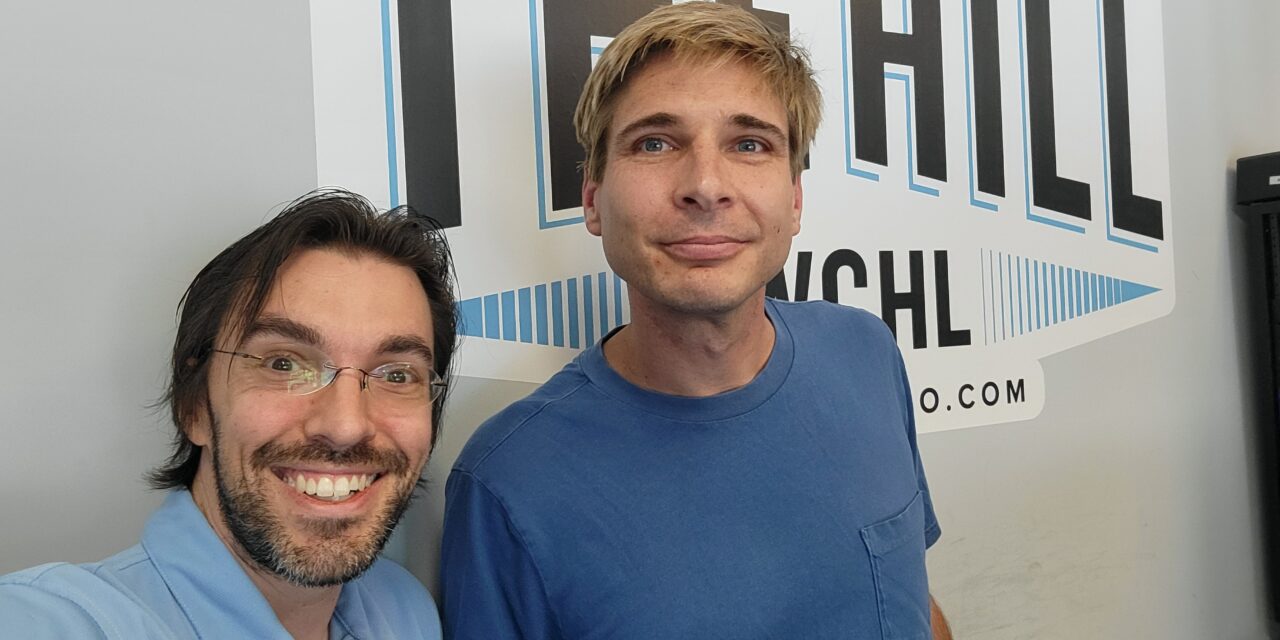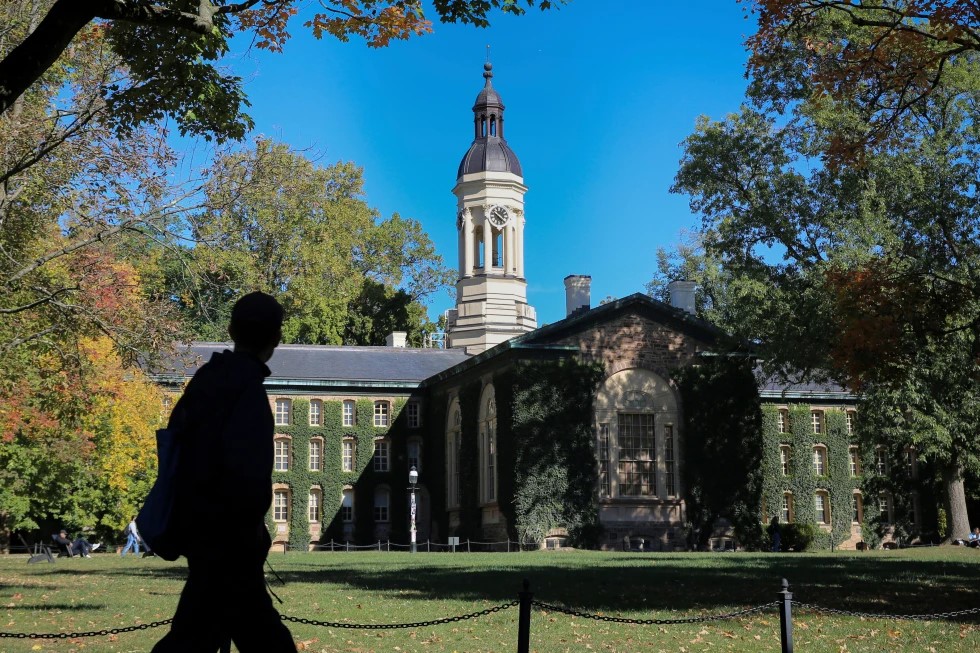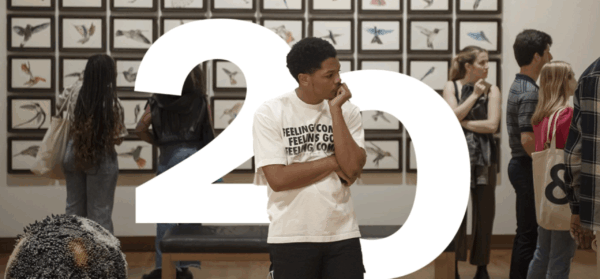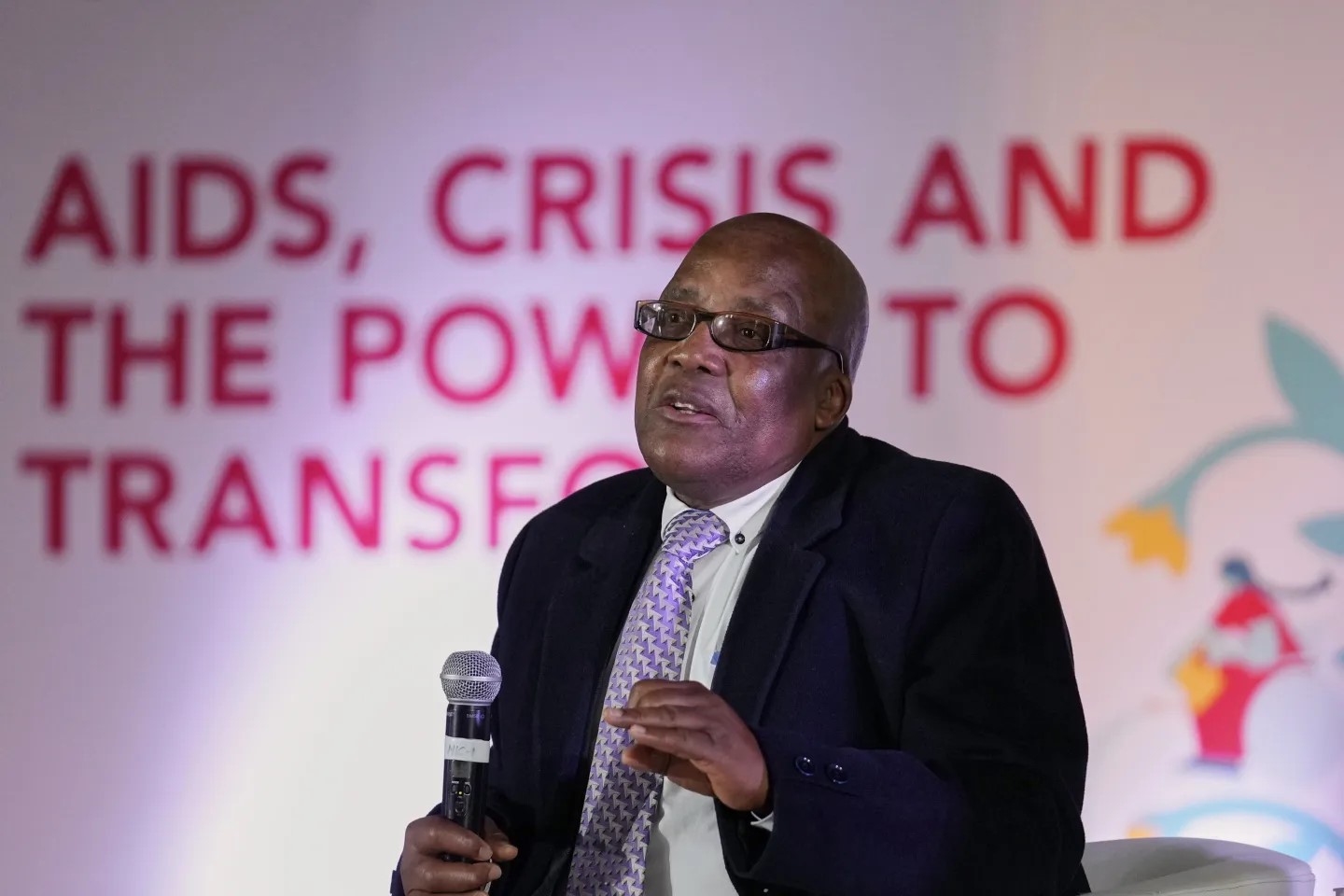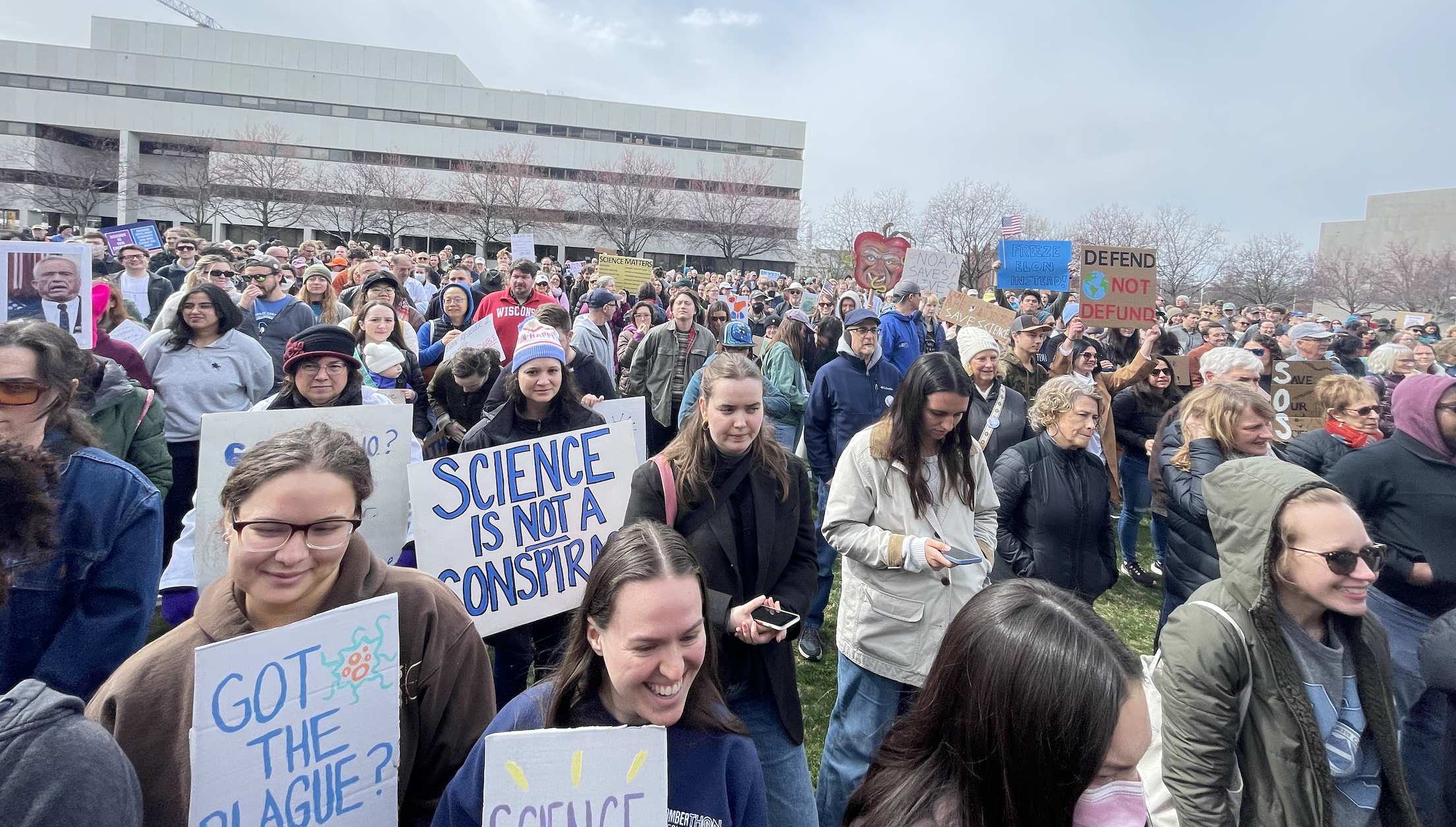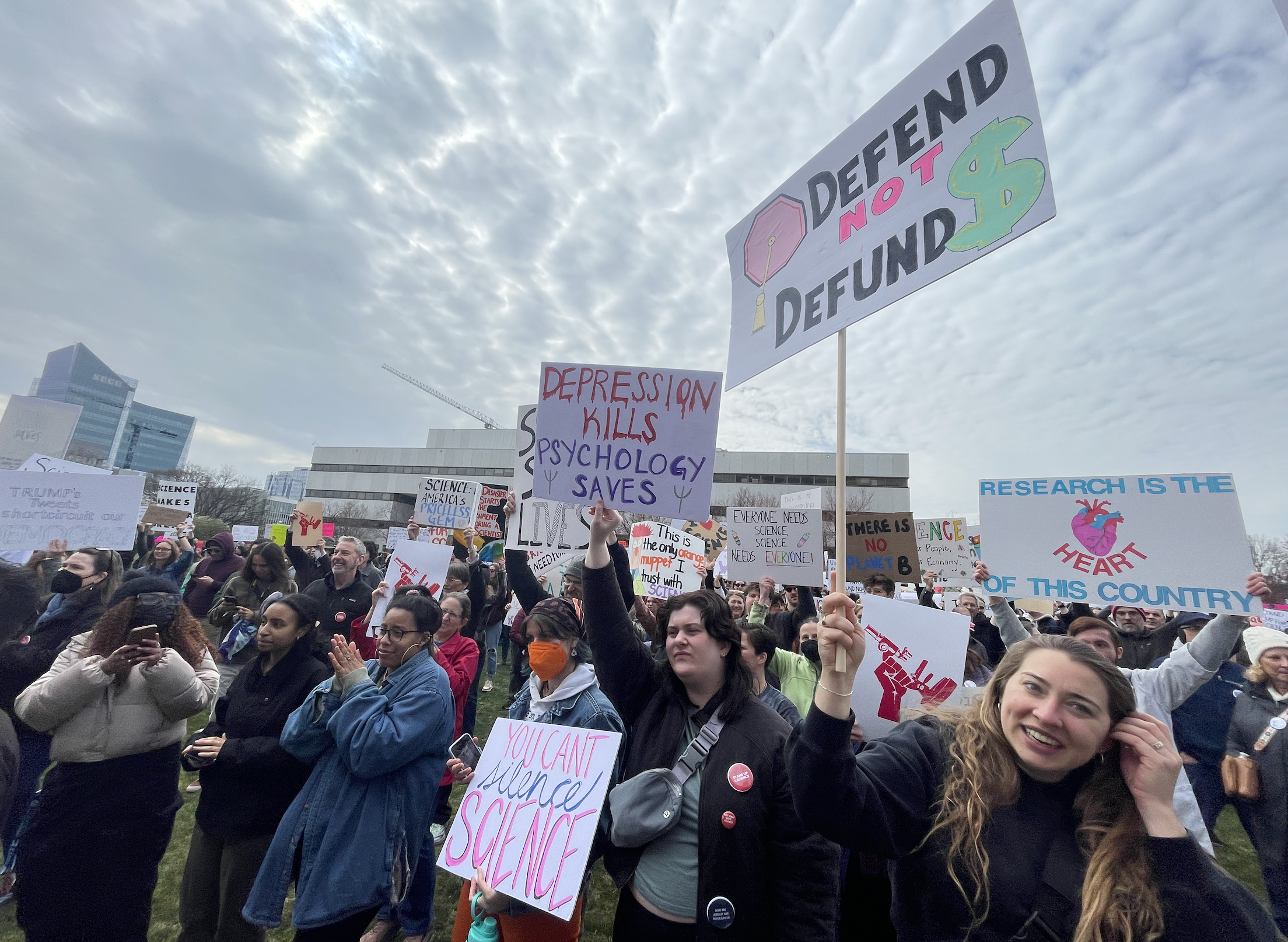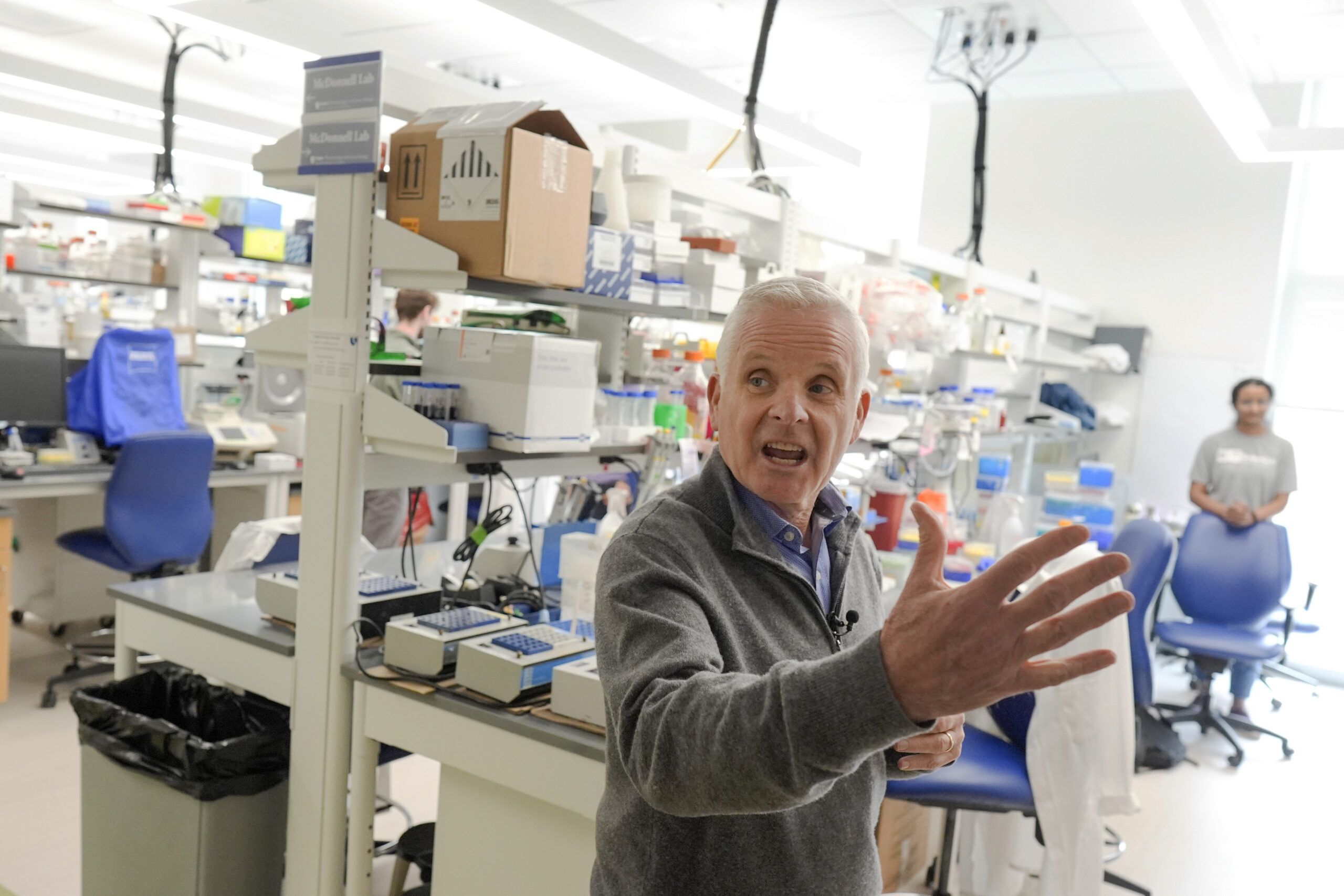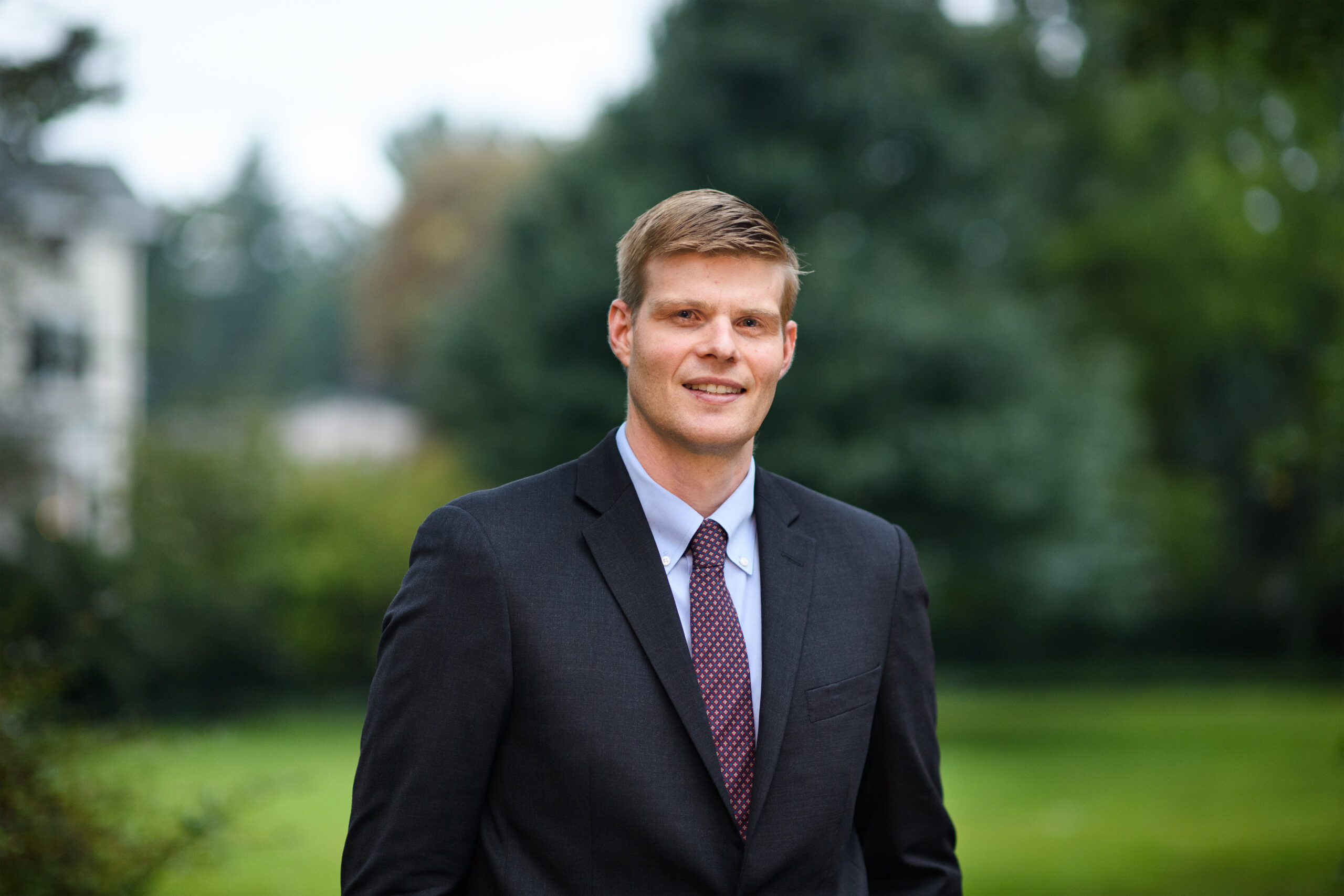Political polarization has been on the rise in recent years, and while Americans don’t agree on much these days, we do tend to agree that this is a problem that ought to be addressed. But how?
At Duke University, one professor is working with his students to figure out the answer — and this week, he’s been passing his knowledge on to other teachers.
“I’m not a horse whisperer,” John Rose says. “I’ve learned from trial and error. And together we’re going to try to spread this.”
Rose is the associate director of the Civil Discourse Project at Duke’s Kenan Institute for Ethics. He’s also the teacher of a class called “Virtuous Thinking in an Age of Political Polarization.”
“There’s real demand on the part of students for classes like this,” he says.
The class is designed for first-year students at Duke, to teach them how to interact with others who think differently — to listen, to understand, to be more open-minded, and to better express their own views as well.
“I believe in the virtues,” Rose says. “Things like courage, even-handedness, humility and charity, hearing each other’s remarks in the best possible terms, being willing to learn from as big a variety of people as possible, [and] admitting that you can be wrong. When you do those things, you’re not just a better person, you’re a better learner — and a better participant in democracy.”
Rose says he was inspired to take action after the nastiness of the 2016 presidential election. Polarization only seems to have increased since then, but Rose says he and his students don’t shy away from the toughest issues.
“I begin my semester with an anonymous poll,” he says. “I ask students: ‘do you self-censor? Why do you self-censor? And on what issues?’ And those are the issues that I put on the syllabus.”
The point is not to reach agreement or find some ‘right’ answer to a question. Rather, Rose says, it’s about learning to approach these discussions with a spirit of love.
“The hero in my class is Martin Luther King, Jr,” he says. “His sermon on loving your enemies is the culmination of the course. So it’s really a course in nonviolence.”
Now, Rose is taking the lessons he’s learned in the classroom and trying to bring them to a wider audience. This week, he’s cohosted a seminar for 22 early-career professors, including some from UNC.
It’s called “Teaching Civil Discourse in the College Classroom.” He’s hosting it along with Teresa Bejan, author of Mere Civility: Disagreement and the Limits of Toleration.
“I think teachers across the country are trying to figure out how to do this,” he says. “And it’s tricky, and it’s scary.”
It may be scary, but Rose says it’s possible — and it’s worth the effort.
“I’ve had two sets of friends of different political persuasions take my class for the sake of trying to put their friendships back together,” he says. “And they have.”
And for the rest of us not in his classroom: what does Rose say we can do to be more virtuous in our own tough conversations?
“Look within,” he suggests. “I think there’s a temptation in our modern politics to draw a line between good and bad at the edge of our party. I like to quote Solzhenitsyn in my class: ‘The line dividing good and evil runs through every individual human heart.’ Including yours. Start there.”
Listen to John Rose’s full conversation with 97.9 The Hill’s Aaron Keck:
Chapelboro.com does not charge subscription fees, and you can directly support our efforts in local journalism here. Want more of what you see on Chapelboro? Let us bring free local news and community information to you by signing up for our biweekly newsletter.

